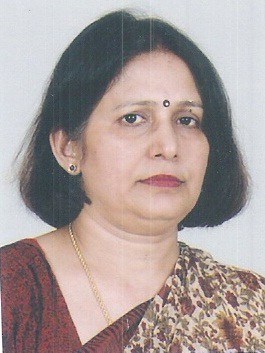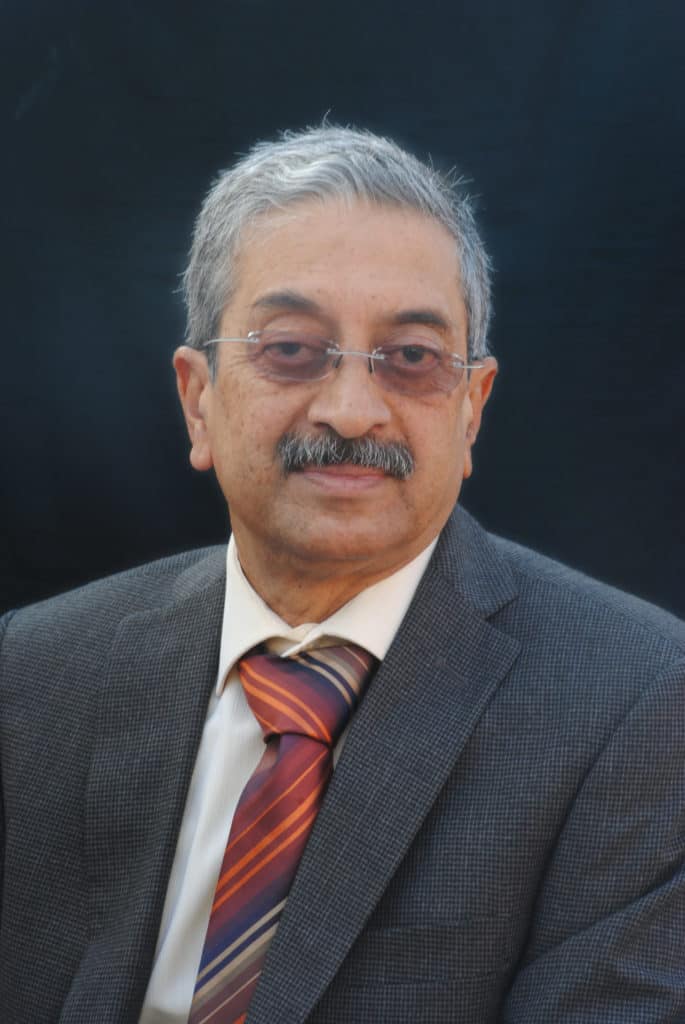“I was in the fourth standard when I began to see things, hear voices, often my jaw used to get locked. Everything appeared foggy. I used to feel as if I was stuck in the middle of nowhere. I wanted to break out but couldn’t because it was untouchable. When I shared my thoughts with my mother she just told me not to be frightened and not to listen to those voices. I tried but failed. I shared with my friends they thought I was making it all up and trying to frighten them by narrating ghost stories. As a result, I thought it was all normal,” says Shivani Thapliyal, filmmaker, who has been living with Schizophrenia since childhood.
Shivani’s mental illness was diagnosed when she was in her early twenties. “Thrice I attempted suicide. My mother also has Schizophrenia and that’s why I thought it was a normal thing.” Today, though she is on medication, she is living alone in Delhi and is earning her livelihood. “I am not ashamed to admit that I have Schizophrenia. Why should I be? It’s an illness of the mind just as we have other illnesses, like TB or diabetes or any other illness.” She says confidently. “I sought medical help myself. My mother does not see a rationale for seeking medical help. To her, her world is normal.”

What is Schizophrenia?
Schizophrenia is a severe form of mental illness that may be characterised by the inability to distinguish between reality and imaginative events. Consequently, those with the illness end up with a whole range of unusual behaviours that range from disorganised thinking to extreme agitation, hallucinations, distorted or delusional perceptions and even verbal and physical aggression.
It usually afflicts young people for the first time between 15 and 25 years of age, but the illness may develop as late as age 40 or later. It occurs in all races, cultures, social classes, and both sexes.
There is, as yet, no research that has identified one single cause of Schizophrenia. An interaction between genes and a range of environmental factors may cause Schizophrenia, just as psycho-social factors may affect its onset and progression. Heavy use of cannabis and other drugs is also associated with an elevated risk of the disorder.
There is no single test for diagnosing Schizophrenia. It is usually confirmed by the psychiatrist after a thorough clinical examination and evaluation of the various symptoms manifested.
Common misconceptions about Schizophrenia and misguided actions
Whenever Shivani’s mother gets psychotic episodes, the family seeks the help of local ‘jhad-phoonkwalas’ (witch doctors). Belonging to Tehri Garhwal, Uttarakhand, most family members and friends believe that Shivani and her mother are merely ‘possessed.’ Her father takes care of them.
The idea that Shivani and her mother are ‘possessed’ is not entirely unusual or rare. Says Dr S Kalyanasundaram, Consultant Psychiatrist and Hon. Advisor, Richmond Fellowship Society (RFS), Bangalore, “Persons living with mental illnesses (PMIs) have to deal with stigma, superstition and discrimination. There’s a stigma attached to it like a magnet because unlike any other ailment nothing is visible; people do not understand why one laughs or gets angry or behaves in a ‘bizarre’ manner. Rationally people do not know how to reach out to PMIs, so a fear grips the family members and the community at large. They begin to think it is something related to the devil. The easiest way left for people is to abandon and boycott PMIs and their families.”
People with Schizophrenia often experience human rights violations both inside mental health institutions and in community settings. Stigma against people with this condition is intense and widespread, causing social exclusion, and impacting their relationships with others, including family and friends. This contributes to discrimination, which in turn can limit access to general health care, education, housing, and employment.
Source: World Health Organisation
Denial = Precious time lost
Initially, families often live in denial. “It is important for family members to notice the signs of peculiar behaviour, like delusions, hallucinations, disorganised thoughts and speech. Treatment should begin as soon as possible. Ignoring it will degenerate the brain and make treatment more complex,” says Dr Shashi Rai, Psychiatrist (Lucknow) and Chairperson RFS, India.
Read more: Common mental ailments: Why it is important to seek specialised help
But the truth is that family members take time to understand what’s happening to their loved ones. Says Aditya (name changed on request), “When I was 13 years old my school was changed. I was a short, skinny person with spectacles. My grandmother had just died and I was also bald. The kids in my class bullied me, called me an alien and used to write 420 on the back of my shirt. In class either I used to sleep or ask stupid questions. I was considered a joker.”
By the time Aditya joined college, he had begun to spout conspiracy theories among friends. They stopped talking to him. He became a loner, a social recluse. “At the workplace I began to speak nonsense; became violent; once I pushed my mother, fought with my brother, became a maniac on roads and took to alcohol like fish to water. It was then that my father admitted me to a mental health institute in Delhi,” he recalls.
Ignorance also leads families to suffer in silence. They waste their time and money by taking the person with Schizophrenia to a witch doctor or religious figure or trying alternative healing. This just aggravates the situation and delays healing.
Madhavi, a bank executive from Bhopal, experienced it first hand with her husband, a veterinary doctor. “My husband got a psychotic attack when he was in his late 20s. Being a doctor, he refused to listen to us. He would say unimaginably nasty and demeaning things to us. He would think that I was plotting to murder him and so on. And one day he hit me so badly that I began to bleed profusely from the mouth. I begged him, my daughters tried saving me, but it was as if he had forgotten all boundaries,” she shares. But when she discussed this with his parents, they refused to seek medical help.
Meanwhile the psychotic episodes kept on recurring and began to affect her work. “When it started affecting my performance at work, I took leave as working in a financial institution demands serious responsibility and accountability,” says Madhavi. But even as she and her daughters lived in fear, her in-laws continued with alternative healing.
The situation only began to deteriorate further. It was only after her husband created a scene at the veterinary hospital where he worked that he was immediately advised to proceed on leave.” Later, his friends convinced him to seek medical guidance. Today, he is on medication and on leave without pay. The time lost in alternative healing has further affected the brain. “Timely medical intervention is important,” says Dr Shashi. “And equally important is the family’s support.”

Abandonment, a brutal reality for people with schizophrenia
Psychiatrists and psychologists feel that family support and the right calibration of medicines for a person living with mental illness are important. “Like in any other illness, the treatment varies for each person with Schizophrenia,” says Dr Kalyanasundram. “But the most important thing is not to stigmatise the person or abandon them.”

At Vishwas, a home cum day-care centre for persons with mental illness in Greater Noida, many families abandon their loved ones. “It has virtually become a dumping ground,” says Dr Manish Jha, Retd Civil Servant and Ex-Secretary, Vishwas. (Vishwas is a branch of Richmond Fellowship Society in Delhi, founded in 1999).
“In my association with Vishwas, I have seen many families abandoning the family member having Schizophrenia,” says Dr Manish, “Family members think that by giving money to a care centre they have fulfilled their duty. But I feel that if family members and caregivers win the trust of people with schizophrenia or bipolar or any other serious mental illness, they can be so easily rehabilitated.”
However he does acknowledge that caregiving is a demanding job and is “emotionally draining for carers”. Caregiving for Schizophrenia requires family members to maintain a balance between their dual roles of providing a support system and looking after the medical care of the individual. “This is challenging. After all, caregivers are also human beings, struggling with their feelings of frustration, stress, helplessness and expressed emotions,” says Dr Manish.
Hope and love, the strongest coping mechanisms
Families of persons living with Schizophrenia have to have hope. “Hope is a nice, positive word,” says Dr Nirmala Srinivasan, Ashoka Fellow and Founder of FACEMi – Families’ Alliance on Mental illness. FACEMi deals with the idea of promoting inclusive families by ensuring that no force divides caregivers and persons with mental illness against each other. She adds, “Mental illness has a devastating impact on the families. Families can collapse. Importance should be given to love, faith, trust and hope.”
Read more: Mental Health: Why you and I have a critical role to play
One of the most critical things in the fight against Schizophrenia is the awareness that it is treatable. Every year, 24 May is acknowledged as World Schizophrenia Day, a day observed globally to generate awareness about Schizophrenia and to bring a ray of hope into the lives of persons living with Schizophrenia. This year too, it was observed with a focus on the theme of ‘Connecting with Hope’.
As Dr Kalyanasundaram explains, recent advances in the management of Schizophrenia help persons with this illness lead an independent and productive life. It should, however, be remembered that even when treatment is effective, persisting consequences of the illness — lost opportunities, stigma, residual symptoms, and medication side effects — may pose troubling challenges for the patients and their families.
“A desirable change would involve volunteers from diverse walks of life to come together, hand in hand and further lead ahead to the path of psycho-social education, interventions and rehabilitation,” says Dr Shashi Rai.
The need is to support the families, and caregivers and not to let them live in fear, or mourn the sunsets, as nights make them question, who am I?